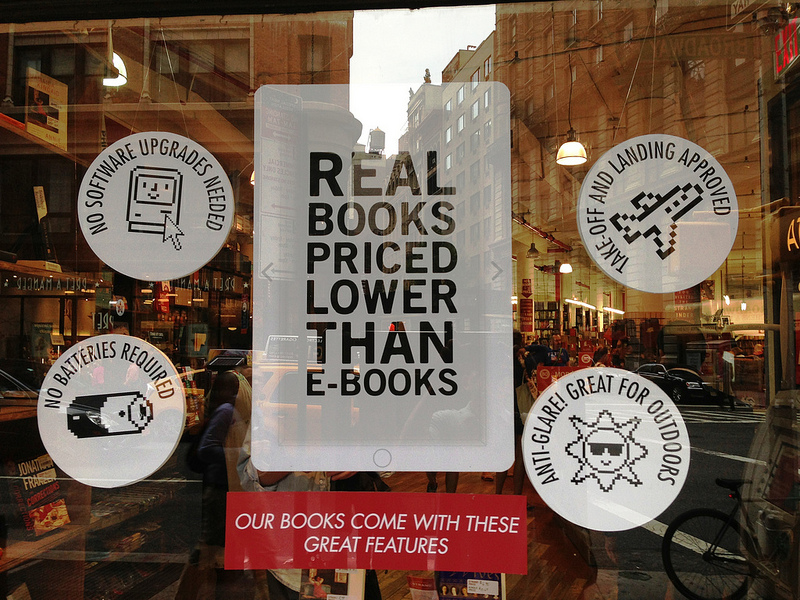Dannager
First Post
You can imagine a world where wizards shoot lightning at dragons using their spellbooks, but not one where real people use real books to play rpgs indefinitely?
I cannot imagine either of those things happening in real life.
You can imagine a world where wizards shoot lightning at dragons using their spellbooks, but not one where real people use real books to play rpgs indefinitely?
"(Television) won't be able to hold on to any market it captures after the first six months. People will soon get tired of staring at a plywood box every night." - Darryl Zanuck, 20th Century Fox founder, 1946
I cannot imagine either of those things happening in real life.
And yet television did not completely replace theater either. The two have learned to coexist, though television is obviously dominate.
While I can easily believe that electronic media will continue to grow in popularity, I do not believe it will ever eliminate print. This is not the view of a luddite, but rather that of a bibliophile. The printed page has an allure and convenience all of its own. And books never need batteries.
In a related field, I would point to the surge in popularity (and sales) of physical board games in recent decades, despite the growing sophistication of computer games and apps.
Neither does my Kindle. I plug it into the wall for a few minutes once a month or so. I'm sure what you really mean is that they don't require power, which is mostly true (they require light, which is only available without power for part of the day), but e-readers require so little of it as to make that a trivial issue in anything but a post-apocalyptic scenario.
I think it's safe to say that, at some point, a film actor probably thought to himself, "Man I wish I was in theater right now."I think it's safe to say that, at some point, a theater owner probably thought to himself, "Man, I wish I were in film right now."
Even if that were true, the notion of subscription services does not necessarily follow. I can still buy and own one book on a Kindle.Digital products and services will become the primary focus of most print companies.
Well that reasoning is...creative. I think it indicates that some people see value specifically in low-tech entertainment.I think this is more a reflection of the burgeoning nature of game design, a field that barely existed more than a few decades ago. All forms of games have surged in popularity in the last few decades.
Books are easier to hold and manipulate,
easier on the eyes,
easier to find the passage you want when you want it.
Easier to read while lying in bed, or out of doors.
I don't have to worry about dropping the book and being out of a couple hundred dollars,
or worry about people sitting on it.
And, when the power is off for two or three days in a row, my books are still there for me.
Books come in basically every size format imaginable. e-readers, on the other hand, are designed for ergonomics. I'm not sure how you can make this claim, at all....Use e-ink....e-readers automatically save your progress, without the need to stick a bookmark in....My Kindle has a full leather case. Dropping it only makes it stronger...It wouldn't be as comfortable as a chair, but it also wouldn't be damaged by the occasion.

